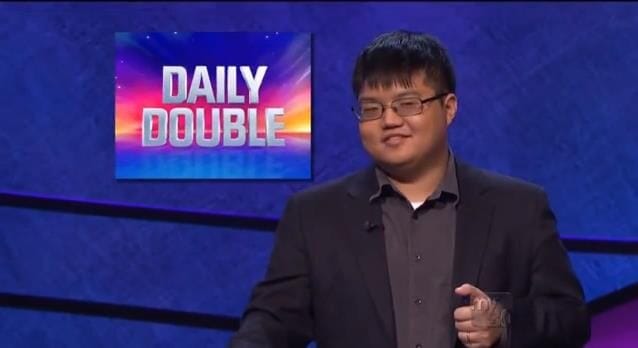Jeopardy!, Game Theory, and Data

As a kid, I would often watch Jeopardy! with my family after dinner. The four of us would race to see who could first shout out the question to Alex Trebek's answers. It was more than a little competitive.
On a good day, I'd get twenty percent of the questions right. I did much better in certain categories than others. For instance, I don't think that I ever scored any points on anything related to classic literature.
With rare exceptions, the real contestants followed virtually identical strategies. They would start at the top of each category and dutifully work their way down. They would effectively try to run the table in sports, movies, or potpurri. If down by vast amounts or in the negative, many in the second round would move directly to the higher-value answers. By then, though, it was almost always too late for them. Desperation is rarely a good strategy.
It'll only take a moment.






